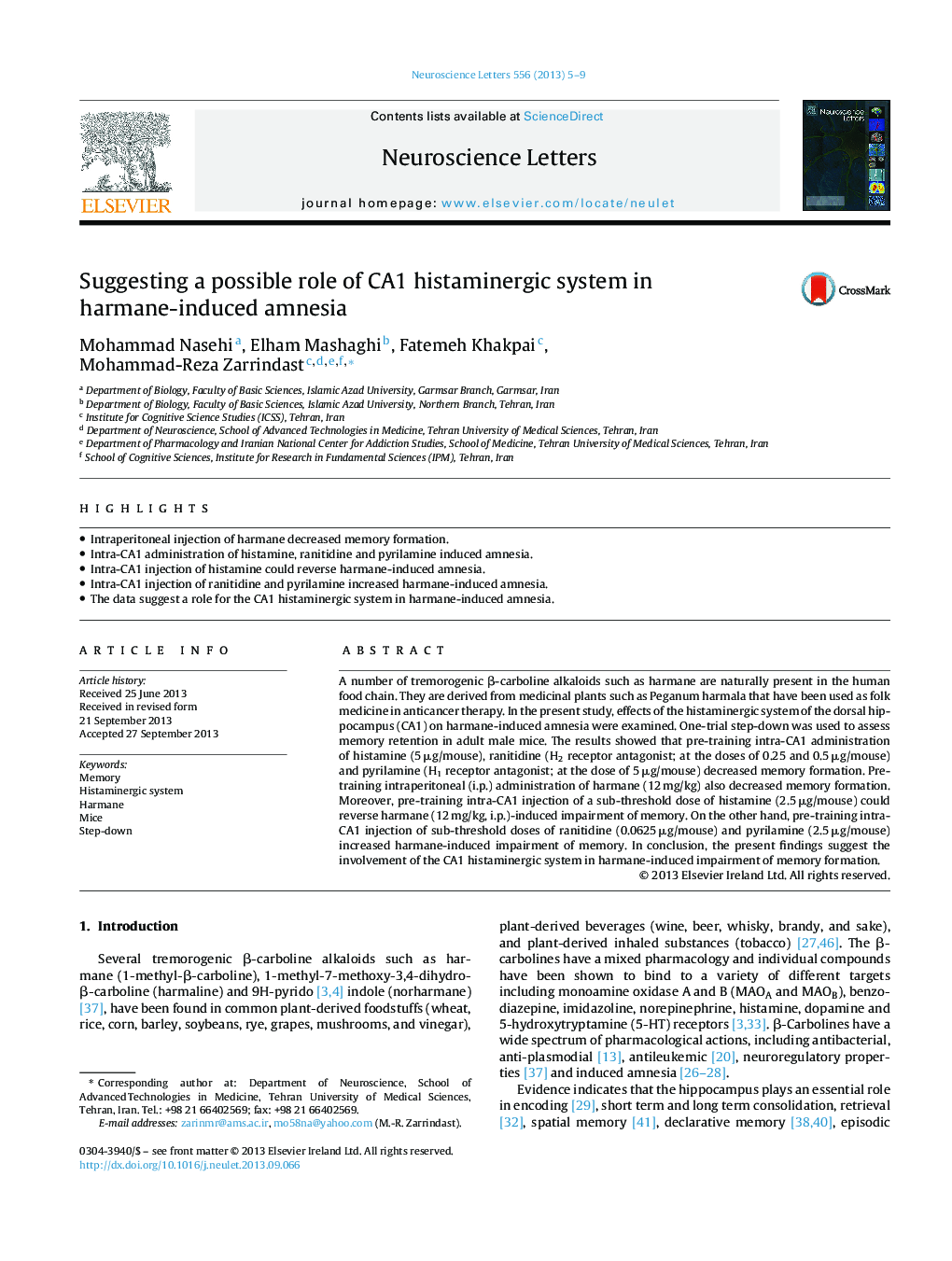| Article ID | Journal | Published Year | Pages | File Type |
|---|---|---|---|---|
| 6282520 | Neuroscience Letters | 2013 | 5 Pages |
â¢Intraperitoneal injection of harmane decreased memory formation.â¢Intra-CA1 administration of histamine, ranitidine and pyrilamine induced amnesia.â¢Intra-CA1 injection of histamine could reverse harmane-induced amnesia.â¢Intra-CA1 injection of ranitidine and pyrilamine increased harmane-induced amnesia.â¢The data suggest a role for the CA1 histaminergic system in harmane-induced amnesia.
A number of tremorogenic β-carboline alkaloids such as harmane are naturally present in the human food chain. They are derived from medicinal plants such as Peganum harmala that have been used as folk medicine in anticancer therapy. In the present study, effects of the histaminergic system of the dorsal hippocampus (CA1) on harmane-induced amnesia were examined. One-trial step-down was used to assess memory retention in adult male mice. The results showed that pre-training intra-CA1 administration of histamine (5 μg/mouse), ranitidine (H2 receptor antagonist; at the doses of 0.25 and 0.5 μg/mouse) and pyrilamine (H1 receptor antagonist; at the dose of 5 μg/mouse) decreased memory formation. Pre-training intraperitoneal (i.p.) administration of harmane (12 mg/kg) also decreased memory formation. Moreover, pre-training intra-CA1 injection of a sub-threshold dose of histamine (2.5 μg/mouse) could reverse harmane (12 mg/kg, i.p.)-induced impairment of memory. On the other hand, pre-training intra-CA1 injection of sub-threshold doses of ranitidine (0.0625 μg/mouse) and pyrilamine (2.5 μg/mouse) increased harmane-induced impairment of memory. In conclusion, the present findings suggest the involvement of the CA1 histaminergic system in harmane-induced impairment of memory formation.
